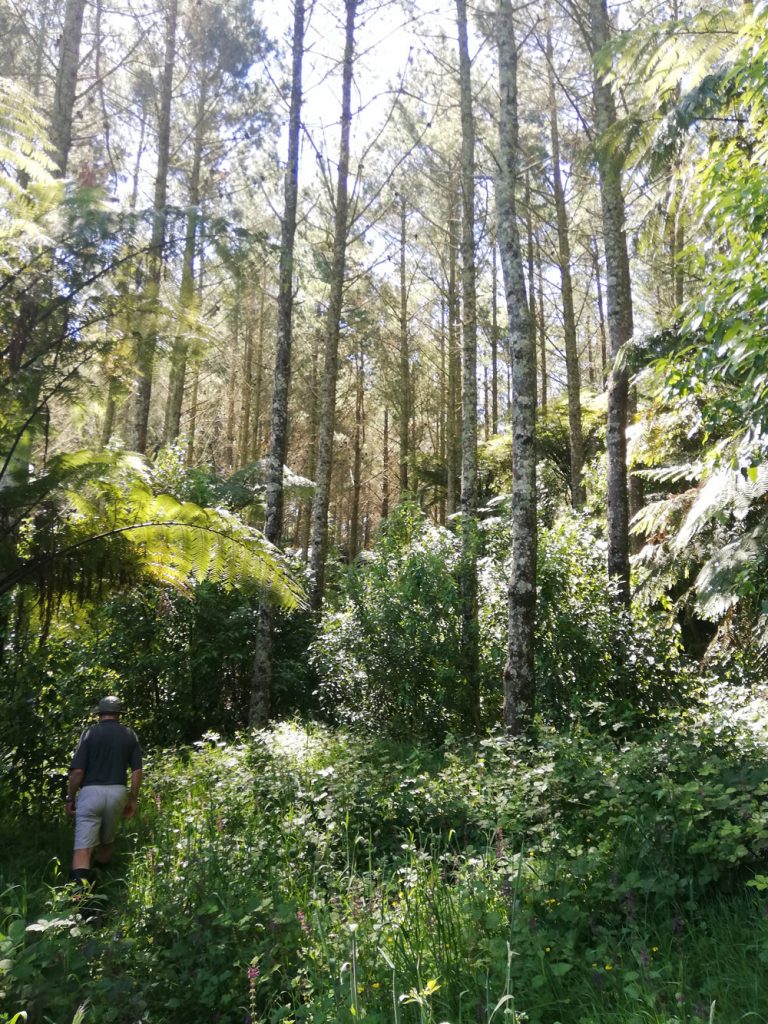| Submitted by: | Anna Bettini |
| Department: | Anthropology |
| Faculty: | Arts |
This picture captures Rodney, a tree farmer I interviewed for my research as we walked through his farm in Taranaki, New Zealand. Rodney has a deep connection to his place, but he is also afraid things could change.
A predominantly agricultural and rural region, Taranaki is considered the centre of oil and gas in the country. In the past years, well sites and production stations have increased in number, all part of a process named fracking. Here, companies have conducted more than 100 fracking activities, often carried near schools, houses, and dairy farms. Where fracking occurs people have experienced headaches, dizziness, nausea, aggravating existing health conditions, and respiratory distress. This controversial practice has changed the social fabric of communities, creating tensions and fractures.
In my research, I listened to the voices of community members, engineers, and experts with two goals: to understand what happens to one’s sense of place, when environmental degradation due to fracking occurs and to make feel people like Rodney safer being at home.

